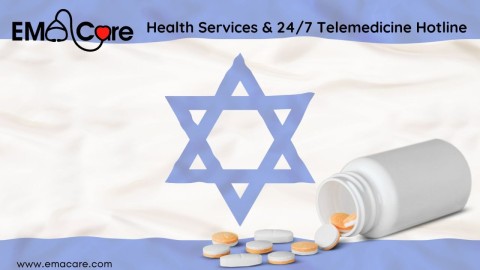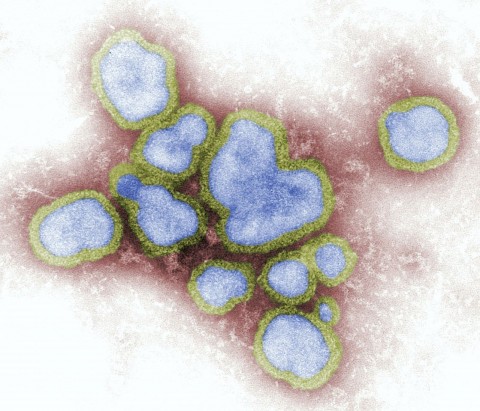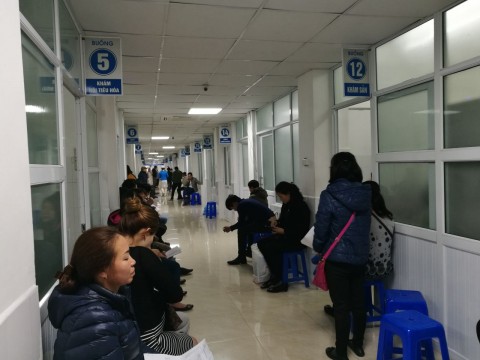Crohn's Disease & Traveling to Israel
Inflammatory bowel diseases (IBD), which include Crohn’s disease and ulcerative colitis, affect as many as 1.4 million Americans, most of who are diagnosed before age 30. Crohn’s disease causes the immune system to attack healthy tissue in the gastrointestinal tract, causing inflammation. It is a life-long condition that can be treated but not cured. Therefore, Crohn’s Disease can significantly affect patients’ quality of life and may have a high financial burden. Ashkenazi Jews are at significantly higher risk for the disorder, and research is being conducted to understand what causes the illness and how it is connected to the Ashkenazi gene. Managing Crohn’s Disease in Israel can be challenging, especially for students and tourists who do not have access to the full-service Israeli health care system.
Crohn’s Disease's main symptoms are fatigue, loss of appetite, abdominal cramps, pain when passing stool, fever, weight loss, diarrhea, possibly eye inflammation, joint pain and swelling, swollen gums, and skin ulcers.
We know that environmental factors can make the symptoms of Crohn’s Disease worse. The factors include:
- Diet
- Smoking
- Stress
- Pollution
Treating Crohn’s should be organized with an interdisciplinary team that should include a physician specialist, nurse, dietician, and perhaps even a psychologist. Sadly, many medications for Crohn’s disease are no longer available for non-citizens in Israel due to a shortage.
EMA Care recommends all patients with Crohn’s disease see a dietician understand what foods to avoid to prevent or control the illness's flare-ups. With this condition, many people cannot absorb certain nutrients, and physicians often recommend high-calorie, high-protein diets and nutritional supplements.
Avoiding “trigger foods,” including alcohol, raw vegetables and fruits, caffeinated beverages, chocolate, oily foods, and whole grains, can alleviate symptoms and even prevent flare-ups.
A bland, low fiber diet is easier to digest. Try to avoid fatty, fried foods, and unfortunately, many kinds of fruits and vegetables. So a nutritionist really needs to guide people with Crohn’s Disease so they can get adequate nutrients.
When managing Crohn’s Disease in Israel, stay away from falafel, shwarma, fried schnitzel, and chips (French fries). Sad to say, but during Chanukah, EMA Care recommends NOT to eat sufganiyot. These Israeli doughnuts are deep-fried and can result in severe pain and discomfort in Crohn’s patients.
Crohn’s Disease can go into remission with proper treatment, but stress may cause the inflammation to re-appear. Traveling, coming to Israel for a gap year, moving to Israel, beginning a new job, getting married, and starting school is stressful situations. It’s important to eat properly, especially when experiencing life’s transitions.
Common medications for Crohn’s Disease are anti-inflammatory drugs, sometimes including steroids. When the first line of treatment does not help, biological may be prescribed. Many of these medications must be injected or infused. These are expensive, a biological drug which targets the immune system to suppress the cause of the inflammation. Appropriate medical treatment for Crohn’s Disease can help to alleviate symptoms and putting the illness into remission.
EMA Care has developed a thorough, comprehensive treatment plan for tourists, students, and Israel residents with Crohn’s Disease. Through EMA Care case management, English-speaking gastroenterologists who specialize in IBD can be seen by patients with the illness. There are several options available for foreign (student/ tourist) patients who need infusions. EMA Care can help arrange delivery of these expensive medications via US insurance companies.
Don’t let Crohn’s Disease or IBD prevent you from visiting Israel.
EMA Care is here to assure you of a problem-free, pain-free stay in Israel.
When you subscribe to the blog, we will send you an e-mail when there are new updates on the site so you wouldn't miss them.







